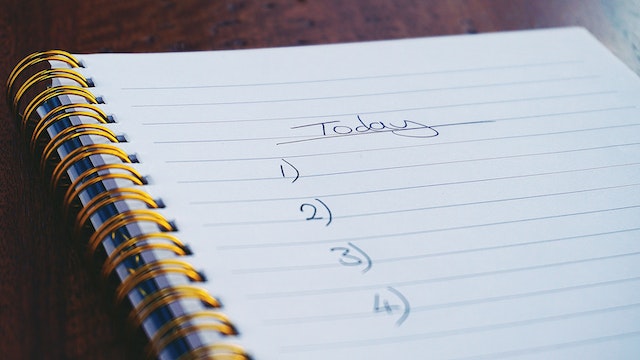In today’s busy world, it’s common to feel distracted and struggle to concentrate at times. With constant notifications from emails, social media and cell phones, in addition to the many thoughts running through our minds, it can be challenging to stay focused on the task at hand.
Sustained focus and concentration are crucial for productivity, learning and overall brain health. When we can train our minds to focus, we are able to process information more deeply, get into a state of flow and experience less mental fatigue.
The good news is that focus and concentration can be improved through practice and by implementing various strategies and techniques. Here are 10 proven methods to boost your ability to concentrate:

Mastering Your Mind: Below are the 10 Strategies for Razor-Sharp Focus and Concentration,
1. Minimize Distractions in Your Environment

One of the most effective ways to improve focus is to minimize distractions in your physical workspace or learning environment.
Here are some tips:
- Put your phone on silent and keep it out of sight. Disable notifications so you’re not tempted to check it.
- Close browser tabs and applications on your computer that aren’t immediately necessary.
- Clear your desk or table space of clutter and anything else visually distracting.
- If possible, move to a quiet location without much audible disruptions. Use noise-canceling headphones or earplugs if necessary.
- Let others know not to disturb you during periods when you need to concentrate deeply. Put up a “Do Not Disturb” sign on your door or send calendar invites when focus time is scheduled.
- Face a plain wall instead of a window if you find yourself looking outside frequently. Limit visual stimuli.
By controlling your environment and external distractions, you’ll find it much easier to stay focused, especially for long periods of time.
2. Take Breaks and Reset Your Mind

While minimizing distractions is important, it’s also essential to take regular breaks from focused work.
Research shows our attention naturally wanes after an extended period of concentration. Taking short breaks allows your mind to rest and recover so you can refocus more effectively afterwards.
Aim to take a 5-10 minute break after every 45-60 minutes of work. Here are some recharging activities:
- Walk around, stretch or do some light exercise. Movement boosts blood flow and oxygen to the brain.
- Drink water to rehydrate. Dehydration can impair focus.
- Eat a healthy snack like fruits, vegetables or nuts. Stabilize blood sugar levels.
- Listen to relaxing or uplifting music. Give your brain a change of audio stimulus.
- Go outside and get some fresh air. Natural environments can be restorative.
- Meditate or practice deep breathing. Calm and center the mind.
Don’t multitask or check social media during breaks! The goal is to give your mind a complete rest from focused thinking.
Establishing good break rituals will boost your ability to re-engage and concentrate fully in the next session. Take as many breaks as needed.
3. Do Focused Work During Peak Energy Hours

Maximize the power of your natural circadian rhythms by planning periods of intense focus when you know you’ll be at your peak energy levels.
For most people, peak hours tend to be in the late morning to early afternoon. Target important or difficult tasks during this window when your mind is most alert.
On the other hand, evenings tend to be lower energy times. Save lighter work or mindless tasks for later when you know concentration will be harder.
You may also find that your energy and focus is stronger on certain days. Take advantage of the days where you know your brain will perform optimally, such as earlier in the week.
Listen to your body’s natural rhythms and work with the energy you have at any given time of day or week. Harness peak hours for hard focus, and manage hours with lower energy accordingly.
4. Engage Your Senses to Maximize Focus

Using multiple senses can help boost engagement, motivation and focus while working on a task. Here are some methods:
- Listen to instrumental or focus music without lyrics which can be distracting. Upbeat tempos may help you stay energized.
- Chew gum while working. The act of chewing engages the senses and may improve sustained attention. Mint flavors may be especially stimulating.
- Drink tea or coffee in moderation for a mild caffeine boost to concentration. Be mindful not to overdo it.
- Diffuse essential oils like peppermint, rosemary or lemon which may have focus-enhancing effects through aroma.
- Eat crunchy or chewy snacks like nuts, carrots or chewy granola bars to work the senses.
Experiment to see which sensory inputs best support your concentration. The combination of sound, taste, smell and touch can optimize your mental engagement.
5. Get Regular Exercise to Sharpen Focus

Regular exercise is one of the most effective ways to improve focus, concentration, and mental stamina.
Physical activity delivers oxygen, glucose and nutrients to the brain, stimulating the release of key neurotransmitters and brain chemicals that support focus. It also builds new brain cell connections and improves memory.
Aim for at least 30 minutes of cardiovascular exercise like brisk walking, jogging, cycling or swimming 3-4 times a week. Strength training also boosts focus by working your brain’s executive control processes.
Make exercise a habit. Consistency is key. The brain benefits of physical activity accumulate over time. Notice how your concentration improves on days when you make time for a workout.
6. Meditate Daily to Train Your Attention

Many studies show that practicing meditation regularly improves focus, concentration and attention span.
Meditation is like a workout for the brain. It strengthens the prefrontal cortex and anterior cingulate cortex which govern executive functions like focusing, prioritizing and impulse control.
Aim to start with 5-10 minutes of meditation per day. Focus on your breathe, silently repeat a mantra or visualize a calming scene. Use apps like Headspace or Calm which can teach beginner techniques.
As you get more practice, gradually increase your meditation time up to 20 minutes daily. Consistency again is key. Make meditation a habit first thing in the morning or before bed.
You should notice improvements in your ability to focus within a few weeks of daily practice. Stay patient and stick with your meditation routine.
7. Prioritize and Structure Your Tasks

Having unclear or competing priorities contributes heavily to distraction and fractured focus. That’s why structuring your tasks is critical.
Before you begin working, take a few moments to:
- Define your top 1-3 priorities for that time period. Keep it simple.
- Break larger tasks down into smaller actionable steps. Write this down.
- Block time on your calendar to focus on each step fully. Minimize task switching.
- Rank tasks by urgency and importance. Tackle high priority tasks first when your energy is highest.
A structured plan will help you focus because you’ll know exactly what to work on. Cross off tasks as you complete them for a sense of progress.
Without structure, your brain falls into a state of conflict trying to decide what to focus on. Create order before you start working.
8. Improve Focus With Brain-Training Games and Apps
There are many apps and online programs designed specifically to boost focus, concentration, and attention through gameplay. The more you engage and challenge your brain, the better your focusing capacity will become.
For example Lumosity and Elevate offer quick daily brain training games using memory, problem solving, and attention tasks. Nintendo Brain Age for the Switch has fun focusing activities. Apps like CogniFit assess cognitive abilities using neuropsychological tests.
Programs like these measure and track your progression in areas like concentration and alertness. Try out a variety of brain training games to find the ones you enjoy and continue playing them often.
Aim for 10 minutes per day of brain training. Consistency again is key to build your focusing skills over time. Make brain training a habit.
9. Learn When to Say No and Limit Commitments
One of the biggest concentration killers is taking on too many obligations and duties. This leads to mental fatigue, divided attention, and constant context switching between tasks.
That’s why an important way to bolster focus is to learn when to say no. Limit non-essential commitments that drain your mental bandwidth. Cut activities that aren’t directly aligned with your priorities.
For example, decline meetings that don’t really require your involvement. Avoid volunteering for extra tasks when your plate is already full. Prevent overscheduling your calendar.
Give your brain ample unstructured time to focus, recharge and refuel. Don’t burn yourself out with excess activities that erode concentration. Say no more often.
Be choosy about what you spend your mental energy on. Protect your attention and limits distractions by not taking on too much.
10. Treat Attention Deficit Disorders If Suspected
Lastly, if you still struggle with severe challenges in concentration despite these tips, it may be worth getting evaluated for attention deficit disorder (ADD/ADHD).
Symptoms like difficulty sustaining focus, wandering mind, poor organization, forgetfulness, and restlessness can indicate attention disorders. These conditions make it profoundly difficult to control focus but are treatable.
Getting clinically diagnosed is important. If a disorder is confirmed, medications and behavioral treatment can help immensely in improving concentration.
Don’t dismiss chronic distraction challenges. Get assessed by your doctor and pursue proper treatments if needed. Your focus will benefit dramatically.
In Summary
Developing strong focus and concentration abilities is critical for productivity, learning, multitasking and more. Luckily, the brain is flexible and these cognitive skills can be enhanced.
Implement the habits here like minimizing distractions, taking breaks, exercising, brain training, and meditation to rewire your brain over time. Be patient and consistent with the strategies that work best for you.
With training, you can take control of your focus – and experience immense benefits in how you think, work, create and live.
Frequently Asked Questions – Improve Your Focus and Concentration
Here are some commonly asked questions about improving focus and concentration:
How long does it take to see results if I practice these concentration tips consistently?
You should notice some benefits to your focus within 2-4 weeks of consistent practice of things like minimizing distractions, meditation, exercise and brain training. Be patient and stick with helpful habits. Focus will continue to improve over months.
Are there supplements that can boost focus and concentration?
Some supplements are theorized to help focus, but results can vary widely by individual. Ingredients like caffeine, L-theanine, Bacopa monnieri, ginseng, ginkgo biloba, phosphatidylserine may have mild benefits for some people. Always check with your doctor before trying new supplements, especially in combination.
How much exercise is needed to improve focus?
Research shows both aerobic and strength training exercise improves focus. Aim for at least 30 minutes of moderate exercise like brisk walking 3-4 times per week, along with some strength training 2 times per week. Any exercise is great, but consistency over time boosts concentration the most.
Should I listen to music to improve focus or is silence better?
This depends on the task and your personal preference. Instrumental music without lyrics may help some people concentrate while working. For intensive learning or reading, silence tends to be better to avoid lyrical distractions. Try both ways and see what works for you. Taking breaks to listen to music can also reset focus.
Is multitasking bad for concentration? Should I focus on one task at a time?
Yes, multitasking excessively hurts focus and concentration. Our brains can only effectively concentrate on one task at a time. Switching between lots of tasks reduces attention, increases errors and hurts productivity. Minimize task switching and structure your day to focus on one priority at a time before moving to the next. Your concentration will improve tremendously.
Conclusion
In conclusion, focus and concentration are fundamental cognitive skills that can be strengthened through healthy habits and consistent practice. By minimizing distractions, exercising, meditation, brain training, prioritizing tasks, and managing overcommitment, you can significantly sharpen your mind’s focusing capacity over time. Be patient with yourself and stick with techniques that prove effective. With training, you can gain more control over your concentration – and experience huge benefits in all areas of work and life.
More Articles
- Finally, Quick Daily Exercises to Lose Belly Fat in a Month
- The 5 Best Exercises for Weight Loss
- Top 10 Tips for Getting Healthy in 2023
- Inspirational Quotes for Daily Motivation
Images from – Pexels

